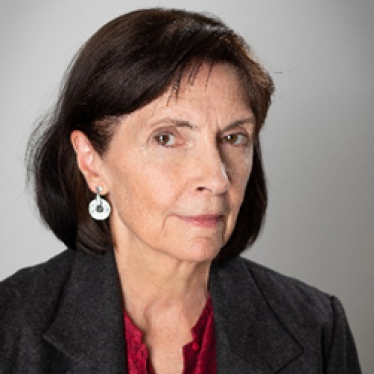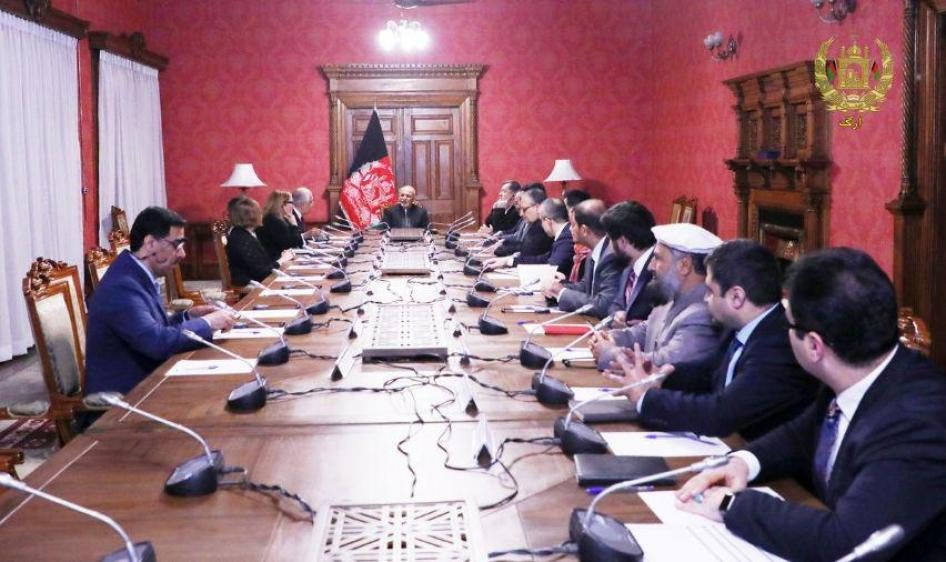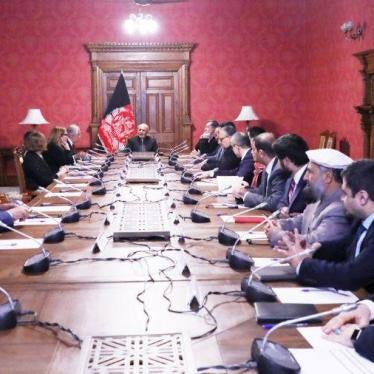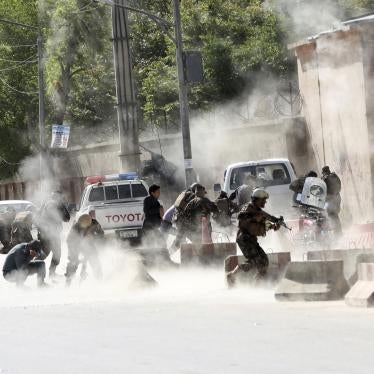Is peace at hand in Afghanistan? U.S. envoy Zalmay Khalilzad’s recent marathon talks with the Taliban in Doha could indicate genuine progress on a negotiated settlement to end the country’s protracted conflict. But what kind of settlement, and which Afghans will have a say in it? And what of the significant but fragile gains — in women's rights and popular participation in the political progress — since 2001?
Afghan civil society activists are worried hat the United States appears to have dropped previous conditions requiring the Taliban to accept the Afghan constitution, including provisions on women’s rights. And they are concerned that foreign involvement may discount the extent of changes that have taken place in Afghanistan since 2001. Their concern is not misplaced. At a diplomatic gathering in Kabul, I asked one Western peace expert what assurances there might be for girls’ education and women’s right to work in any peace deal. The reply: “It wouldn’t make much difference in the [more conservative] south of the country, would it?”
The Taliban certainly is aware of the change. As it has come to control more territory, the Taliban has assumed the responsibilities of local government, responding to pleas from local communities that both boys’ and girls’ primary schools function, and ensuring that teachers show up. Even so, secondary schools for girls in these areas are rare. When asked about women’s right to work, Taliban officials usually say yes, but only in education and health care. What, then, for women holding public office or running businesses? The Taliban’s views show some increased flexibility, but there is far to go, and in its talks with the Taliban, the United States should press for guarantees on equal rights for women and respect for Afghanistan’s international human rights obligations.
Afghan journalists are concerned as well. They long have been threatened and assaulted by powerful politicians, members of parliament, and Taliban commanders. In January 2016, a Taliban attack killed nine journalists from Tolo TV because the armed group’s fighters wanted to retaliate for alleged biased reporting. Nevertheless, Afghanistan’s media remain among the most vibrant in the region — except in areas under Taliban control, where there is no free media. Donors who have funded and supported Afghan media need to press for the preservation of post-2001 gains.
The need to end the war and its a terrible human toll is clear. Civilian casualties have topped 10,000 every year since 2016 — many of these women and children. The Taliban, which detonated a car bomb disguised as an ambulance in Kabul one year ago, killing over 100 people, has to overcome much disbelief about its willingness to respect civilian lives.
But few powerful people in Afghanistan have clean hands on human rights. Since 2001, both the Afghan government and its international allies have subordinated good governance to reach short-term deals among the warlords. They financed institutions that failed to reform and looked the other way as corrupt Afghan militias and strongmen assaulted and killed civilians. Who will disband these militias in a settlement?
For those living under the Taliban, similar problems are apparent. Residents from Taliban-held areas in Faryab, Logar and Takhar provinces told me that some local commanders rule arbitrarily, closing girls’ schools and punishing residents for traveling to Kabul or whose relatives work for the government. During the Eid ceasefire in June, the Taliban demonstrated they could control their forces. But can they ensure their fighters will respect civilians after a peace deal is signed?
Afghanistan’s international partners, including the United States, have a crucial role to play in ensuring that the peace process addresses essential human rights protections, including women’s rights, a free media and protection of civilians. The experience of peace-making elsewhere teaches us that, as talks move forward, there may be more violence, not less, until the deal is signed.
At this critical moment, the international community needs to use its leverage so that any peace agreement includes fundamental rights guarantees and mechanisms to ensure they are protected. Afghanistan cannot afford to repeat the mistakes of the past.










